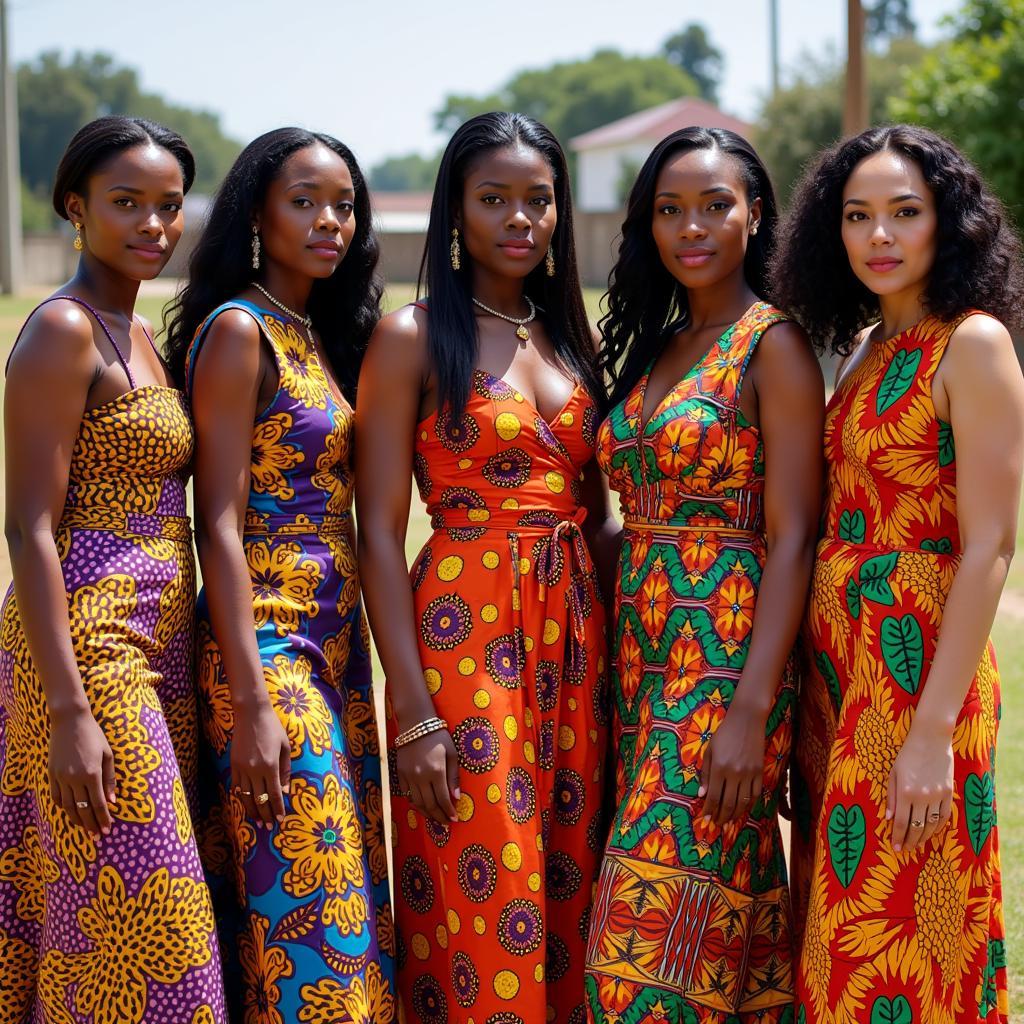The Enduring Legacy of the African Guerrilla
The term “African Guerrilla” often evokes images of liberation struggles and armed resistance movements that shaped the continent’s history. From the jungles of Angola to the deserts of Eritrea, guerrilla warfare became a defining feature of African resistance against colonialism, oppression, and injustice. This article delves into the complex world of African guerrilla movements, examining their tactics, ideologies, and lasting impact on the continent.
Colonialism as a Catalyst for Guerrilla Warfare
The seeds of guerrilla warfare in Africa were sown during the era of European colonialism. The imposition of foreign rule, coupled with economic exploitation and social disenfranchisement, fueled resentment and a desire for self-determination. In many instances, conventional military confrontation proved futile against heavily armed colonial powers. Guerrilla warfare, with its emphasis on mobility, surprise, and knowledge of the terrain, emerged as a viable strategy for resistance.
Tactics and Strategies of African Guerrilla Movements
African guerrilla movements displayed remarkable adaptability and innovation in their tactics and strategies. They often operated in small, decentralized units, utilizing hit-and-run attacks to harass enemy forces and disrupt their operations. Guerrilla fighters relied heavily on their knowledge of local geography, using dense forests, rugged mountains, and remote villages as sanctuaries and bases of operation.
One crucial aspect of guerrilla warfare was the support of local populations. Guerrilla movements often relied on civilians for food, shelter, and intelligence. Winning the “hearts and minds” of the people became paramount, and many movements adopted political platforms that resonated with local grievances, such as land redistribution, social equality, and an end to discriminatory practices.
Ideological Underpinnings: From Nationalism to Marxism
The ideological spectrum of African guerrilla movements was diverse, ranging from nationalist aspirations to socialist and Marxist doctrines. Some movements, like the Algerian National Liberation Front (FLN), primarily sought independence from colonial rule, emphasizing national unity and self-determination. Others, like the People’s Movement for the Liberation of Angola (MPLA) in Angola, drew inspiration from Marxist-Leninist ideology, advocating for socialist revolution and the overthrow of capitalist systems.
Despite these ideological variations, a common thread united many African guerrilla movements: a deep-seated yearning for freedom, justice, and self-governance. Whether driven by nationalist zeal or socialist ideals, these movements challenged the existing power structures and reshaped the political landscape of the continent.
The Legacy of African Guerrilla Warfare
The legacy of African guerrilla warfare is complex and multifaceted. On the one hand, these movements played a pivotal role in liberating many African nations from colonial rule. The sacrifices made by guerrilla fighters inspired generations and contributed to the dismantling of oppressive regimes.
On the other hand, the protracted nature of some guerrilla conflicts led to widespread suffering, displacement, and human rights abuses. The use of violence, even in the pursuit of liberation, left scars on individuals, communities, and national psyches.
Moreover, the transition from guerrilla warfare to peaceful governance proved challenging in some cases. The militarization of society, the proliferation of weapons, and the difficulty of integrating former combatants into civilian life posed significant obstacles to post-conflict reconstruction and reconciliation.
Frequently Asked Questions about African Guerrilla Warfare
1. What were the main factors contributing to the rise of guerrilla warfare in Africa?
2. Which African countries witnessed significant guerrilla movements during the 20th century?
3. What were some of the key differences between guerrilla movements in different parts of Africa?
4. How did African guerrilla movements impact the Cold War dynamics on the continent?
5. What are some of the challenges faced by African countries in dealing with the legacy of guerrilla warfare?
Seeking More Insights on African History and Culture?
Discover captivating stories and in-depth knowledge about the rich tapestry of African Life:
- Explore the fascinating world of 7 African gods and goddesses
- Delve into the captivating realm of African 1st stage of literature
- Learn about the diverse African crops list that sustain the continent
For any assistance or inquiries, don’t hesitate to contact us:
Phone: +255768904061
Email: kaka.mag@gmail.com
Address: Mbarali DC Mawindi, Kangaga, Tanzania
Our dedicated customer support team is available 24/7 to assist you.

